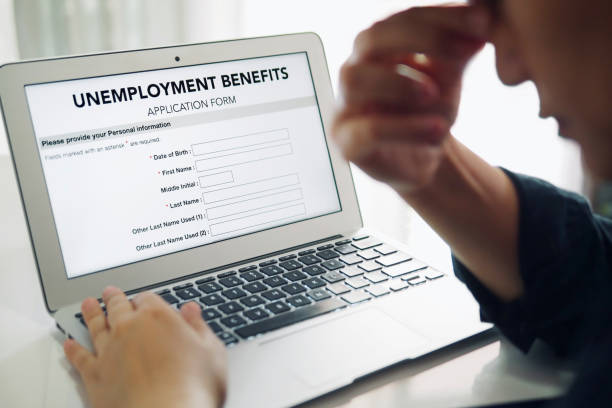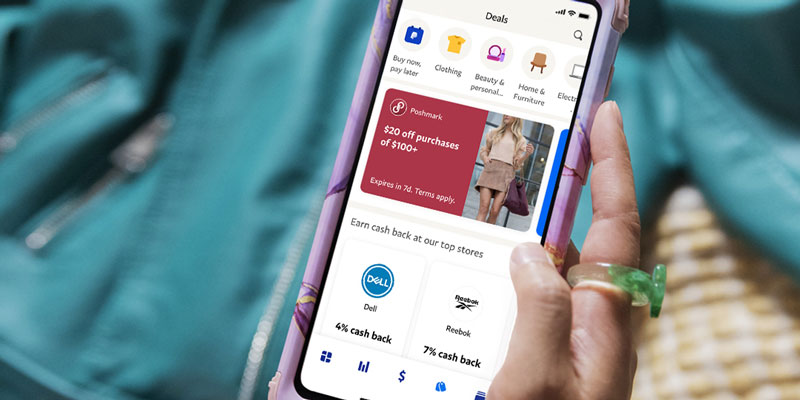How to Get Unemployment Pay
Feb 11, 2024 By Susan Kelly
You may be eligible for unemployment benefits if you’ve recently lost your job due to career displacement, economic circumstances, or other factors beyond your control. In the current state of the economy, more people are being detrimentally affected than ever before; understanding how to get unemployment pay is essential in giving yourself a degree of financial security until you find another job.
Depending on where you live and various qualifications that may exist within that specific region, there are several methods by which one can receive this compensation. We will outline everything necessary, so readers have a comprehensive and reliable road map to successfully apply for and receive these funds without issue.
Unemployment Pay

Unemployment pay is a form of financial assistance the government gives to individuals who have lost their job through no fault. This monetary compensation is designed to help cover expenses such as rent, food, and other necessities while an individual actively looks for another source of income.
Each state has different eligibility requirements and regulations regarding unemployment benefits; however, the overall purpose remains consistent throughout the United States.
How To Apply For Unemployment Pay

- Determine Eligibility: The first step in applying for unemployment pay is to determine whether or not you are eligible. Generally, individuals should have lost their job due to no fault and must actively seek new employment opportunities. There may be minimum requirements concerning the length of time one had been employed before termination that must be met before an individual can file a claim.
- Gather Necessary Documentation: After determining eligibility, gathering all essential documents required to successfully apply for benefits is important. Examples of these documents include copies of your W-2 form, letters from former employers verifying separation status, and proof of citizenship (if applicable).
- File a Claim: Once all necessary documentation has been collected, the next step is to file an official claim with your state’s unemployment office. This can usually be done via mail, online, or in person at one’s local unemployment office. After submitting the claim form and all relevant paperwork, most claimants will receive notification within two weeks concerning whether or not their application was accepted.
- Attend Interview (if Necessary): In some cases, states may require an in-person interview before granting benefits to individuals who have applied for unemployment pay. During this interview, representatives from the unemployment office will assess the individual’s current circumstances and determine if they meet all eligibility criteria.
- Receive Benefits: If all goes well and the claimant is approved, they will begin to receive benefits within a few weeks. An individual's compensation is based on their previous wages and other information provided in their application. Generally, these payments are made weekly or bi-weekly and deposited directly into one’s bank account.
It’s important to note that unemployment benefits are taxable income, so keep track of any funds received for filing at tax time. Failure to comply with state guidelines regarding reemployment may result in denial or termination of current benefits; therefore, job seekers must take active steps towards finding suitable employment as soon as possible.
Reasons You Qualify for Unemployment Pay
- You lost your job through no fault: If you were involuntarily laid off or fired due to economic conditions or circumstances beyond your control, you are likely eligible for unemployment pay.
- You have enough previous work experience: Claimants must have worked for their most recent employer for a minimum time before being terminated to qualify for benefits. The exact requirements may vary from state to state; however, most require at least 6 months of prior employment with that particular company.
- You are actively seeking new employment opportunities: To receive unemployment pay, individuals must prove they are actively looking for another job and do not plan on settling into long-term unemployment. The best way to demonstrate this is by listing recent efforts towards finding employment, such as submitting resumes, attending career fairs, or participating in job search workshops.
- You meet all qualifications for your state: Each region has different criteria that must be met for individuals to receive unemployment benefits; ensure you have thoroughly read and understand the specific requirements that apply to your area before submitting a claim form.
By understanding these reasons, readers should better understand why they qualify for unemployment pay and what is required to receive these funds without issue.
Benefits of Unemployment Pay
When individuals find themselves out of work, unemployment pay can provide much-needed financial assistance to help meet the cost of living expenses while one looks for a new job. That being said, here are five main benefits associated with collecting unemployment pay:
Financial Stability
One of the primary advantages of being approved for unemployment benefits is that it provides individuals with a stable income until they can secure another job. This can be especially helpful if you’ve faced a layoff due to economic circumstances and need extra support to cover bills and other living expenses.
Job Readiness
Most states require individuals to actively pursue employment opportunities to maintain their unemployment pay; this can be a great way for people to stay on top of job trends and practice interview skills while still receiving some compensation.
Reduced Stress
Having an additional source of income during times of financial hardship can give unemployed individuals peace of mind that they will have money coming into the household even if they can’t secure a new position quickly. This can help alleviate stress and pressure, allowing them to focus on the task without worrying about how they will make ends meet until then.
Government Assistance
In some cases, an individual may not have enough earnings from a previous job to qualify for benefits; however, they still could be eligible for assistance through the federal government’s Supplemental Security Income (SSI) program.
Potential Tax Refund
Unemployment pay is considered taxable income, so individuals can take advantage of certain credits or deductions when filing their taxes. For example, some states offer refunds on unemployment insurance contributions, and there are also potential incentives that can reduce any taxes you owe on unemployment benefits.
FAQS
How long do you have to work to collect unemployment Pay?
The exact requirements may vary from state to state; however, most require at least 6 months of prior employment with that particular company.
Who pays the most for unemployment?
Many states pay the most for unemployment. An individual's compensation is based on their previous wages and other information provided in their application.
What jobs have the most unemployment?
It can be difficult to pinpoint which jobs have the highest instances of unemployment since this can vary from region to region. Some industries typically associated with higher unemployment rates include hospitality, retail, and manufacturing.
Conclusion
Unemployment pay can be incredibly helpful in supporting yourself financially when you’re unemployed, but getting unemployment pay can be complicated. To increase your chances of getting your claim approved and receiving unemployment pay, ensure that you meet all of the requirements set out by your state, such as actively searching for work and filing weekly reports thoroughly. Researching other additional resources in your area, such as assistance with job placement or financial aid, might also help you succeed.

What Is a Developed Economy?: An Extensive Overview

10 Lucrative Side Hustle Ideas You Can Start in 2024

How to Get an Offer Accepted on a House with Multiple Offers

How to Create a Facebook Business Page: Easy 6-Step Guide

Is the Amex Gold Card Worth It? My Six-Month Review

All You Need To Know About Real Estate Counteroffers

Social Security Benefits

What You Should Know About Mistakes In Debt Consolidation

Is PayPal a Secure Method of Payment?

